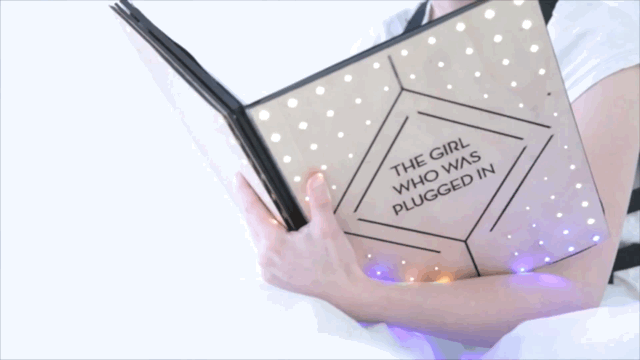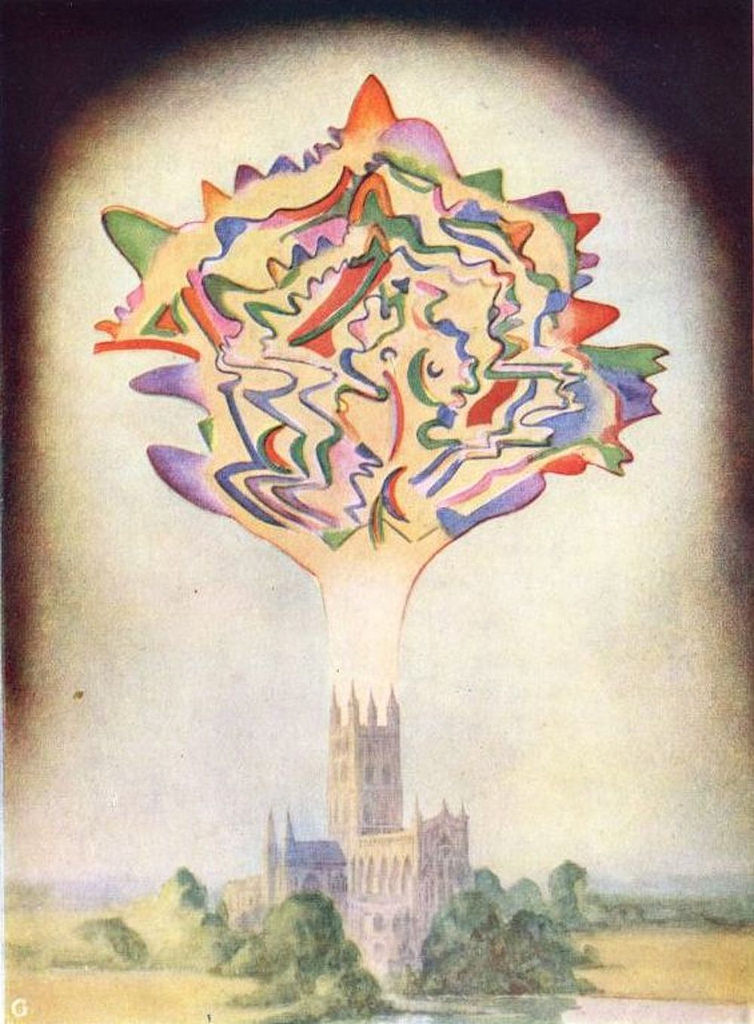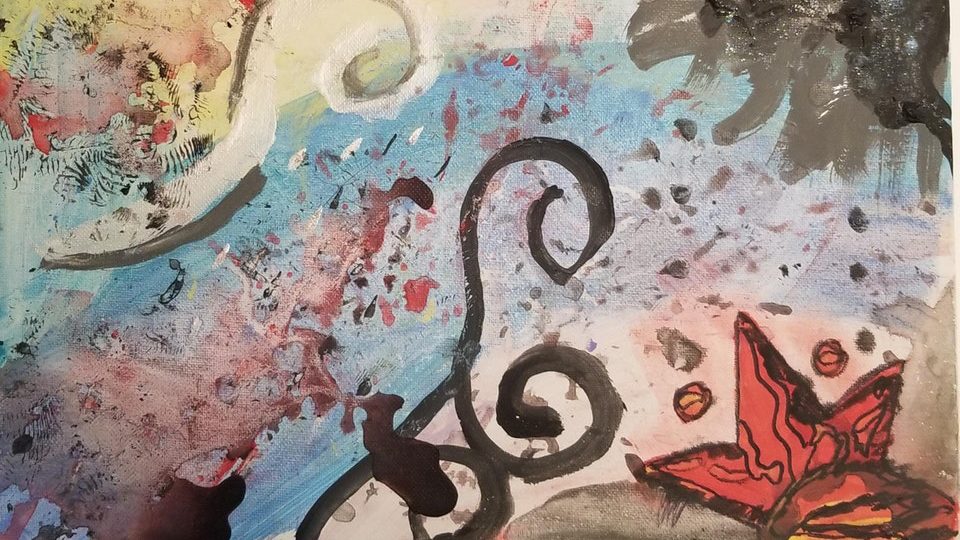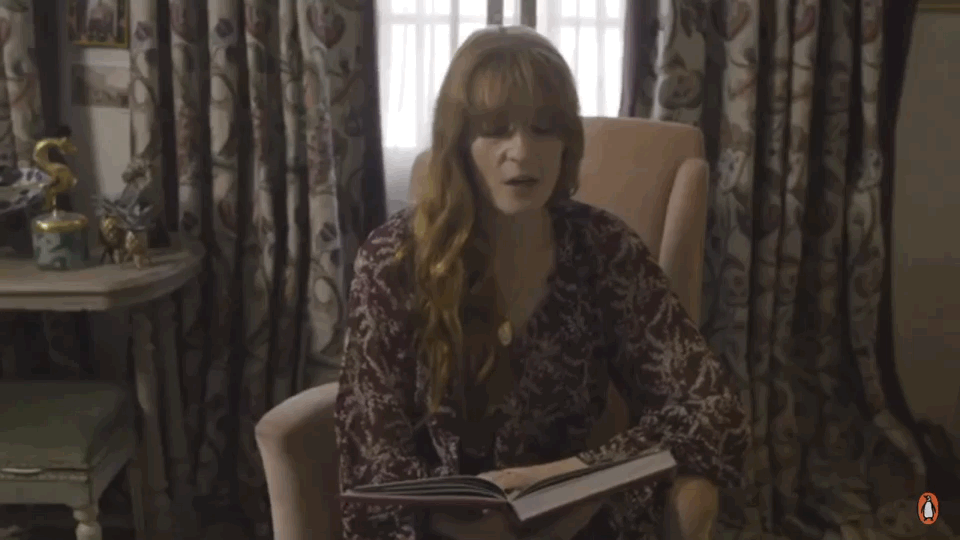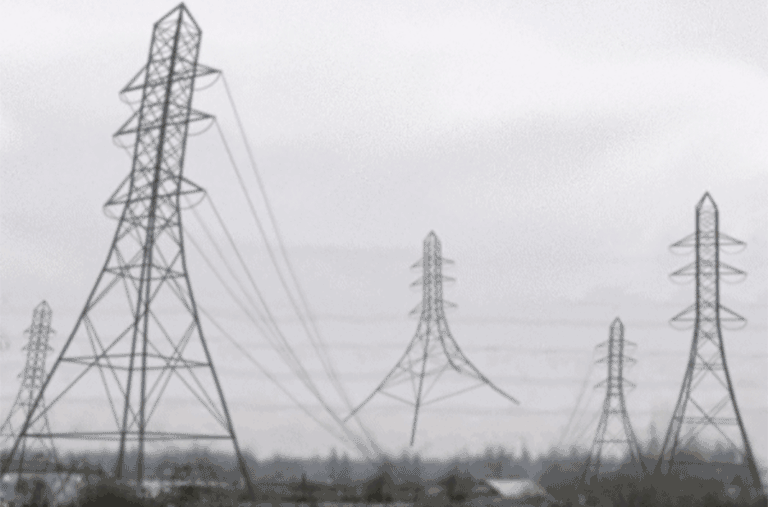“The Massachusetts Institute of Technology has taken the idea of sensory fiction several stages further and offers a Science Fiction to Science Fabrication course. Using a range of sensors and tools, part of the studies include building a wearable connected book contraption in the form of a strap-on vest. This allows the reader to get fully in contact with the character’s emotions and physical states for a genuinely immersive reading experience. Selected passages trigger vibrations to influence heart rate, and […]
How “THOUGHT-FORMS” (1901) bridged synesthesia and mysticism, calendar synaesthetes map time in space, and a light sculpture that plays like a trigger instrument
“Thought-Forms, a strange, beguiling, frequently pretentious, utterly original book first published in 1901, emerged from this ferment of late-Victorian mysticism. It was written by Annie Besant and Charles Leadbeater, erstwhile members of the London Theosophical Society alongside Yeats, and it features a stunning sequence of images that illustrate the book’s central argument: emotions, sounds, ideas and events manifest as visual auras.” — Benjamin Breen, Victorian Occultism and the Art of Synesthesia Contents Selected Reads Sensory Entrancement Sensory Resources Chuckles + […]
Author Kaite O’Reilly challenges normalcy with characters, the Steinhardt Museum of Natural History in Israel is a visually open design to gardens, and pottery wheel curlicues
“Instead of combusting, O’Reilly embarked on the D-monologues, which is made up of lots of conversations with disabled people. “I don’t take people’s stories, it feels too much like theft,” O’Reilly explains. “Instead I took people’s hopes, fears, thoughts, lived experiences, and used them to inform a fictional monologue. There are lots of different opinions: some people say ‘I’m not disabled, I don’t want to be called disabled’ because they may have a very different perspective from someone like me. […]
David Verdesi’s journey to discover sensory superhumans becomes a Coppola film, dyspraxia diagnoses stories, and perpetual sensory flight, fight, or freeze takes a toll
“It can result in leading oneself deeper in to a neurotic retreat and isolation in to those “oh-so-distracting pleasurable safe feelings” which one comes to cherish, finding solace in a perceived to be real yet still illusory sensation and feeling of “energy ” which is then equated with being spiritual or feeling good, without realizing that the momentary high leads nowhere concretely in term of actual mental and emotional growth, not to mention nowhere in term of genuine development. It […]
Florence Welch shares poetry in her book Useless Magic, a mind-bending sensory reading list from Tom Parks, and humans can detect quantum photons
“Welch’s mother is a professor of Renaissance studies at King’s College London who worried about her daughter skipping university to focus on her musical career, lamenting “what a waste of a brain!” Both the lyrics and the poetry in Useless Magic validate Welch’s choice, offering a chance to appreciate on the bare stage of the blank page the fineness of her words. And like fellow poet-musician Nick Cave (thanked for “inspiration and encouragement” here), Welch has found a way for the song and the voice of the rabbit-hearted girl to coexist. As she says herself: “you can have everything.”
Doritos flavoring fools your senses into thinking they’re nutritious, rhythm perception may help stuttering, and cake icing videos to rest your mind
“We think we experience the aroma of food when we smell it, but it’s actually a bit more complex than that. When you bite into the food, the aroma goes into the back of your throat and through a small hole up into your nose. This is called retronasal olfaction, and is actually a more powerful form of smelling than normal smelling. This is what allows you to experience the richness and nuance of food.
Brain scans reveal the experience of flavor takes up more gray matter than any other sensory experience. Additionally, the largest portion of the human genome involves the creation of your nose. So, from an evolutionary perspective, this chemical-sensing ability appears to be particularly important.”
Hearing silent images is the most common synesthesia, UCLA transferred snail memories, and I hear “Yanny”
“Up to one in five people may show signs of a synesthesia-like phenomenon in which they ‘hear’ silent flashes or movement, according to a new study from City, University of London.
While the effect is barely known to science, the researchers found that this ‘visually-evoked auditory response’ (vEAR) is far more common than other types of synesthesia – such when certain sounds elicit a specific colour – with flashing lights and motion evoking vivid sounds.
The survival of this association may also explain other links between sound and vision, such as why we like to listen to music synchronised with flashing lights or dance.
…While other typical synesthesias are estimated to have an overall prevalence of 4.4 per cent, the vEAR effect has recently gained some prominence on social media following the rise of ‘noisy GIFs’, and in particular the ‘thudding pylon’ GIF which received thousands of retweets.”
An undiagnosed love story, autistic vision focuses on the details, and an auditory dimension augmented reality experience
“…The turning point came with a startling realisation: we don’t argue. Ever. Early on in our marriage I was terrified of any sign of anger on his part. Even mild irritation left me quaking. I would shut down and not respond. In the end, we found a way to be and we haven’t had a cross word for more than a decade.
Years ago, Tim would snap over something small and I would retreat upstairs and not come down until I knew he had either gone out or had calmed down. I simply didn’t engage. Now he no longer even considers getting cross; he knows nothing will come of it. Problems are discussed calmly and solutions negotiated. Anything else seems bizarre to me. Why would anyone want to scream and shout at the person they love?”

